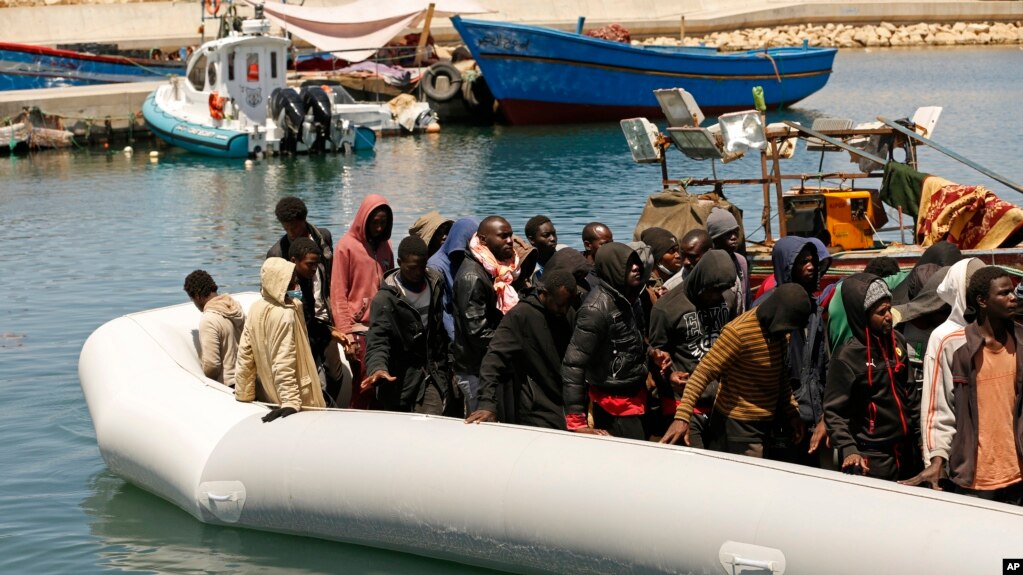Reports suggest that armed Libyan officials attacked a migrant boat traveling from Libya to Italy over the weekend. The alleged incident, which took place in the Mediterranean Sea, follows a recent deadly shooting involving Libya’s coast guard in the same area. Despite rising criticism, the European Union continues to fund and cooperate with Libyan authorities in their efforts to stop migrant crossings.
According to a statement from the Italian Coast Guard, investigations have begun into claims that Libyan officers opened fire on a fishing vessel carrying migrants. The Italian authorities said they rescued three injured people who required urgent medical care from a group of about 140 migrants traveling toward Sicily.
The non-governmental group Alarm Phone also reported a fatal shooting on October 12 involving another boat carrying around 113 migrants, claiming that two people were killed. Although the information has not been independently verified, both events reportedly occurred in the same area southeast of Malta.
The Italian Coast Guard stated that “initial statements from the occupants” described the attack as occurring approximately 160 kilometers southeast of Malta, within Maltese search-and-rescue waters. Officials are still examining whether the two incidents might be connected or refer to the same vessel.
The Times of Malta quoted a Maltese military spokesperson who said the authorities had monitored a fishing vessel but saw “no visible commotion” and received no distress calls. The boat was later intercepted near the Italian coast and brought to the port of Pozzallo.
What does this mean for migrants at sea?
It means that migrant journeys across the Mediterranean remain extremely dangerous, with repeated claims of violence by Libyan officials adding to the risks. Many humanitarian groups say these attacks highlight the urgent need for safer migration policies and international oversight.
This recent event is the third reported attack involving Libya’s coast guard in just three months. In August, the NGO-operated rescue ship Ocean Viking—run by SOS Mediterranee—said it was shot at for 20 minutes. The following month, the German charity Sea-Watch reported a similar armed assault on one of its vessels.
In a 31-page report, Sea-Watch said that since 2016, at least 60 violent incidents have been documented involving “migrants as well as civil and EU actors at sea.” Most of these cases are linked to Libya’s coast guard, with at least 54 taking place in international waters. These incidents include shootings, dangerous maneuvers, and cases of leaving dead bodies at sea.
Despite international concern, the European Union (EU) and Italy continue to deepen cooperation with Libyan authorities. Italy’s Prime Minister Giorgia Meloni maintains that such efforts have helped reduce shipwrecks, though human rights groups argue that the real goal is simply to keep migrants from reaching Europe.
According to the International Organization for Migration (IOM), more than 20,000 migrants are expected to be intercepted by Libyan authorities in 2025. Aid organizations like SOS Humanity, Sea-Watch, and Doctors Without Borders (MSF) are urging European governments to stop supporting operations that endanger migrant lives.
Meanwhile, Germany is debating whether to expand its participation in the EU’s Operation Irini, which aims to enforce the UN arms embargo on Libya but also affects migration routes. Critics warn that involving Libyan officials in this mission would only legitimize violence against migrants.
As tensions rise, humanitarian groups continue to call for accountability, transparency, and the protection of migrants’ rights at sea. The ongoing cooperation between European and Libyan authorities remains a subject of deep moral and political debate.

